Fellows
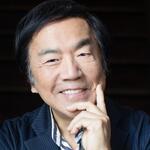 |
John KaoEntrepreneur in Residence at YaleDubbed “Mr. Creativity” and a “serial innovator” by The Economist, John has been active in the fields of innovation and entrepreneurship for four decades. He is an entrepreneur-in-residence at Yale and will be teaching a course on innovative thinking at Tsai CITY. John draws from his experience as a serial entrepreneur, musician, former business school professor, author, and Tony-nominated producer of film and stage. He is a graduate of Yale College (1972), Yale Medical School (1977) and Harvard Business School (1982); his undergraduate association was with Trumbull College. John has held faculty appointments at Harvard Business School (associate professor), the MIT Media Lab (visiting professor), the US Naval Postgraduate School (distinguished visiting professor of innovation) and Stanford University (course head, Innovation Management, Bowman House). He is co-founder and chairman of ThayerMahan, Inc., a leader in maritime intelligence and a board member of the Midnight Oil Collective. John is author of the best-seller Jamming – The Art and Discipline of Business Creativity and Innovation Nation: How America Is Losing Its Innovation Edge, Why It Matters and What We Can Do To Get It Back. He writes regularly in a Forbes.com column; his work has been covered by The New York Times, Fortune, The Economist, and the Colbert Report among others. John produced Golden Child in partnership with Yale Drama School associate dean Ben Mordecai for which he received a Tony nomination. He served as production executive on the film sex, lies and videotape, which won the Palme d’Or at Cannes, and executive produced Mr. Baseball for Universal Studios. In the summer of 1969, he apprenticed to rock legend Frank Zappa. Email John Kao |
Joette KatzCommissioner |
|
 |
Chandra KelseyPublic HealthChandra Kelsey is a dedicated public health practitioner at the Yale School of Public Health (YSPH), where she co-instructs the Public Health Practicum course. In this role, she facilitates the connection between MPH students and community-engaged partnerships, emphasizing principles of equitable engagement, positionality, and best practices in health communication.
In addition to teaching, Chandra oversees the Applied Practice Experience (APE) for all MPH students at YSPH. She advises on internships, independent projects, and practitioner skill-building, guiding students as they navigate their professional development and real-world public health practice.
Beyond her teaching responsibilities, Chandra has been actively involved in several impactful side projects at YSPH focused on increasing equity and representation. Her contributions include advising on lactation spaces and policies, advancing menstrual health equity initiatives, improving access to Naloxone/overdose reversal aids, enhancing food access, and supporting the Pathways to Science Public Health Day. This annual event introduces local teens to diverse careers in the health services field, embodying her commitment to community health education and engagement.
Before embarking on her public health career, Chandra gained valuable experience in the fashion industry and high-end retail. She played a pivotal role in helping wholesale manufacturers expand into brick-and-mortar direct sales business models, showcasing her strategic vision and leadership capabilities.
Originally from Southern California, Chandra is a proud first-generation non-traditional college graduate. She has been recognized for her professional achievements and community contributions, being named to Connecticut Magazine’s 40 Under 40 list in 2020. In her spare time, she enjoys traveling to Thailand to visit her family, exploring new restaurants, undertaking DIY remodeling projects on her over 100-year-old home, and staying busy with her kids and puppy.
Email Chandra Kelsey |
Joshua KendallAuthor |
|
 |
Noreen KhawajaReligious StudiesNoreen Khawaja specializes in 19th and 20th century European intellectual history, and particularly on the shifting status of religious ideas in late modern Western philosophy and culture. Her research examines the collapse of metaphysics both historically and philosophically. She looks at this issue in relation to secularity, the retrieval of theological traditions, and the rise of critical discourses on religion. She is currently working on a book that studies how Christian models of conversion formed the basis of the ideal of personal authenticity in existential thought, focusing on Søren Kierkegaard and Martin Heidegger. She completed her Ph.D. from Stanford University in 2012. In 2010 she was a DAAD Research Fellow in the Philosophy Faculty of Albert-Ludwigs-Universität Freiburg. She has recently published an article on the problem of individuality in Kierkegaard and Karl Löwith. At Yale, she teaches courses on modern Christian thought, phenomenology, existentialism, and on a variety of topics in the philosophy of religion. Email Noreen Khawaja |
 |
Jin KimOperations, Finance and AdministrationJin Kim joined Yale in February 2024 as the Assistant Vice President for Operations, Finance and Administration and will lead a phased integration of the finance and administrative activities across Facilities, Campus Development and Sustainability, Information Technology, Finance and Audit, Human Resources, Hospitality, Public Safety, Administrative Operations, and New Haven Affairs and University Properties. Previously, Jin served as Deputy Provost for Academic Planning and Administration at The New School, where she provided crucial leadership in aligning academic priorities with resource planning and managing a wide array of administrative initiatives. Her extensive background in higher education also includes international and strategic roles at New York University, where she demonstrated expertise in financial analysis, strategic planning, and organizational management.
Jin holds a Master of Public Administration in Financial Management and Public Finance from New York University’s Robert F. Wagner Graduate School of Public Service as well as Bachelor’s degrees in Economics, and in Philosophy, Politics and Law from Binghamton University.
|
 |
Elizabeth KinsleyUndergraduate Admissions“It’s a dream to lead admissions for Northwestern – an institution I love, with remarkable strengths to share,” Kinsley said. “To be able to shape the future of this community at the helm of a smart, hardworking and ever-fun team of colleagues I already know and respect makes this new role all the more thrilling.” For the past four years, as director of communications in the Office of Undergraduate Admission at Northwestern, Kinsley has steered messaging strategies and led efforts in creating digital, print, social media and presentation content. She also trained staff in application evaluation and managed the selection process. Earlier in her career, as director of outreach and recruitment at Yale, Kinsley led initiatives that resulted in the most diverse class in the University’s history to that point. Email Elizabeth Kinsley |
 |
Igor KirmanAttorneyIgor is a partner in the Corporate Department at Wachtell, Lipton, Rosen & Katz, where he focuses primarily on mergers and acquisitions, activism and takeover defense, corporate governance and general corporate matters. He is a frequent speaker at professional conferences, and has written articles in numerous professional publications on topics. He was twice named as Dealmaker of the Year by American Lawyer (2006 and 2015). He is the author of a book, “M&A and Private Equity Confidentiality Agreements” (Thomson Reuters) and teaches a course on M&A as a member of the adjunct faculty at Columbia Law School. Igor received a B.A. in Ethics, Politics and Economics magna cum laude from Yale in 1993 and a J.D. from Columbia Law School in 1996. He is involved in a number of civic institutions, including as a member of the Advisory Board of the Mount Sinai School of Medicine, a Trustee of the Trinity School, and a director of Renew Democracy Initiatives (RDI), in addition to numerous involvements at Yale. He was born in Ukraine and speaks Russian. Email Igor Kirman |
 |
Andrew KlaberPaulson & Company and Even GroundAndrew Klaber is a Partner on the investment team at Paulson & Company, a multi-strategy investment firm in New York, where he invests across industries and the capital structure. Since 2002 he has served as the president and founder of Even Ground (www.evenground.org), an international non-profit that annually provides more than 2,000 children who have been orphaned or made vulnerable by HIV/AIDS with academic scholarships, basic health care, and nutrition in Africa. Andrew graduated summa cum laude and Phi Beta Kappa president from Yale, where he was a Truman Scholar, Udall Scholar, and First-Team USA Today Academic All-American and, at commencement, received the David Everett Chantler Award for “best exemplifying the qualities of courage, strength of character, and high moral purpose” and Hadley Prize (valedictorian). He earned Masters of Science degrees in Financial Economics and Economic History from Oxford as a Marshall Scholar, and holds a JD/MBA from Harvard Law School and Harvard Business School. Email Andrew Klaber • LinkedIn |
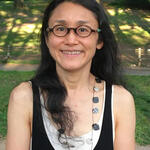 |
Yukiko KogaAnthropologyMy research explores emerging moral and legal landscapes for post-imperial and post-colonial reckoning in East Asia today as contemporary generations wrestle with the history of settler colonialism, forced migration, and slavery, decades after the formal end of Japanese imperial violence. My first book, Inheritance of Loss: China, Japan, and the Political Economy of Redemption After Empire, explores how China’s transition to a market-oriented economy opened new spaces for current generations of ordinary Chinese and Japanese to encounter each other and navigate colonial inheritances in the urban everyday of Northeast China, the former site of the Japanese puppet state Manchukuo. Situated at the height of China’s socio-economic transformation in the 1990s and 2000s, my ethnography demonstrates how the economic realm has become an unexpected site for the generational transmission of difficult pasts. While the concepts of memory and trauma are often used to show the lasting effects of original violence, I suggest that these concepts may have limited our political imagination about what is at stake for second and third generations in East Asia in coming to terms with contested pasts. I use the concept of “colonial inheritance” to make visible contemporary generational responses to the losses incurred through colonial modernity, as set in motion through China’s transition to a market-oriented society. As China’s economy grows, it channels contradictory impulses toward erasing, confronting, or capitalizing on the past into production, consumption, and accumulation, exposing and amplifying new forms of anxiety arising from inherited legacies of colonial modernity for both Chinese and Japanese. Beneath the rationalized rhetoric of economic prosperity and the pursuit of “modern life” lurks the tenacious question of reckoning with the past through quotidian encounters in the workplace, on the streets, and in residential complexes. I show how the economic sphere became a key site for generational transmission of losses, linking the moral economy of seeking redemption for the unaccounted-for past to the formal economy of exports, consumption, and the citywide pursuit of middle-class dreams. My book-in-progress, Post-imperial Reckoning: Law, Redress, Reconciliation, and the Unmaking of Empire, ethnographically examines the emergence of a new moral landscape for reckoning with Japanese imperial violence. It charts a significant sea change being carried out in the legal sphere by ordinary citizens doing the hard work of reconciliation that the political sphere seems to proscribe. At its heart is a series of collective lawsuits filed within Japanese jurisdictions since the mid 1990s by Chinese victims of Japanese imperial violence seeking official apologies, monetary compensation, and acknowledgement of historical wrongs from the Japanese government and corporations. These lawsuits have produced a new moral landscape that is challenging the widely accepted model of redress, in which closure is sought through the former perpetrator acknowledging past wrongs and making amends. Instead, my book shows how the legal redress movement expands the scope of reckoning, exposing how contemporary societies are implicated in violence that only appears distant. I tell this story of transformation through the lens of debt, which articulates the entangled complicity and implication at the core of belated imperial reckoning. Through ethnographic explorations of lawsuits inside and outside the courtroom, transnational and intergenerational collaborations among Chinese slave labor survivors and bereaved families, Japanese lawyers representing them pro bono, and citizen activists in both countries, I enquire into what redress, repair, and reconciliation mean in practice, and what settlements settle and unsettle. The book thus explores the stakes for current generations in coming to terms with distant, yet still alive, pasts. I earned my Ph.D. in Anthropology from Columbia University, MA in Political Science from the Maxwell School of Citizenship and Public Affairs at Syracuse University, and Bachelor of Laws from Keio University in Tokyo. Email Yukiko Koga |
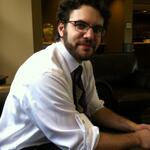 |
David KohnTimescaleAfter studying environmental engineering as an undergrad, David continued work on an electrochemical desalination technique as a post-graduate fellow then formed an award winning startup around the technology (Red Ox Systems). However, the technology ended up being too early to really build a business around, so he joined a battery manufacturing startup called Urban Electric Power . After a year or so, he became responsible for dealing with the battery cycling data and became interested in databases and big data. He then spent some time at an advertising analytics company called Moat, working on heavily modified PostgreSQL data warehouses powering the main analytics product. He decided to go further into the database world and joined a 10 person startup called Timescale dealing with time series data. He's served in multiple roles and has been growing with Timescale as it has doubled and redoubled in size over the last few years. |
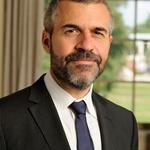 |
Jonathan KramnickEnglishMy research and teaching is in eighteenth century literature and philosophy, philosophical approaches to literature, and cognitive science and the arts. My first book—Making the English Canon: Print Capitalism and the Cultural Past, 1700-1770 (Cambridge, 1999)—examined the role of criticism and aesthetic theory in the creation of a national literary tradition. My second—Actions and Objects from Hobbes to Richardson (Stanford, 2010)—considered representations of mind and material objects along with theories of action during the long eighteenth century. Building on this study, my current book project asks what distinctive knowledge the literary disciplines and literary form can contribute to discussions of such topics as perceptual consciousness, created and natural environments, and skilled engagement with the world. Portions have appeared in Critical Inquiry and elsewhere. Email Jonathan Kramnick |
 |
Christina KrausClassicsChris Kraus received her BA from Princeton and PhD from Harvard. She taught at New York University, University College London, and Oxford University before coming to Yale in the summer of 2004. She has research interests in ancient narrative (especially historiography and tragedy), Latin prose style, and the theory and practice of commentaries. She is a member of the program in Renaissance Studies. |
 |
Laura-Kristine KrauseFormer World Fellow Laura-Kristine Krause is Founding Director of More in Common Germany, an organization devoted to understanding the forces that are driving our democracies apart and to countering “us vs. them”-narratives. She also serves on the organization’s international executive team, alongside her colleagues from France, Poland, the UK, and the US. Laura is a leading expert on polarization and social cohesion and an advisor to key civil society organizations, initiatives, and political institutions. She also applies this lens to her role on the oversight board of Germany’s largest public broadcaster ZDF and her board roles in German philanthropy and public administration. |
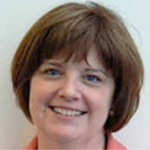 |
Ann KuhlmanInternational Students & ScholarsAnn Kuhlman has served as the Director of OISS since 1999 when she moved to New Haven after twenty years of working with international students and scholars at the University of Pennsylvania. While it took some time, Ann now considers herself a New Englander (although she still enjoys a trip to Philly.) Ann is active nationally in international student and scholar issues and has given presentations at numerous conferences and seminars. Always willing to travel, Ann also spends her free time (?) reading and trying to garden. Email Ann Kuhlman |
 |
Harini KumarInstitute of Sacred Music and Department of AnthropologyHarini Kumar (Ph.D. University of Chicago) is a sociocultural anthropologist with research interests in lived religion, Islam and Muslim societies, kinship, gender, ethics, material culture, and migration. She is currently a Postdoctoral Fellow at Yale’s Institute of Sacred Music and Lecturer in the Department of Anthropology. She is completing her first book manuscript, Formations of Tamil Islam: Religion, Mobility, and Placemaking in Asia, which is an ethnographic study of Muslim belonging in Tamil-speaking south India. Kumar’s new research project on transoceanic Muslim mobilities explores the connections between South India, Southeast Asia, and the Americas through the enduring legacy of a Sufi saint. It traces present-day continuities with older, racialized networks of trade, indentureship, and migration, providing new perspectives on religious belonging that emerges from an interconnected ocean space. Prior to joining Yale, Kumar held a two-year postdoctoral position at Princeton University. Her research has been supported by the Wenner-Gren Foundation, the American Institute of Indian Studies, and by several programs at the University of Chicago and Princeton University. She was recently the co-curator of the two-year Power, Inequality, Dissent project at Princeton University, and co-PI in a multi-year, global research project titled Logistics in the Making of Mobile Worlds funded by the Neubauer Collegium for Culture and Society. In Fall 2024, Kumar is teaching an undergraduate seminar titled ‘Religion, Place, and Space,’ crosslisted in the Department of Anthropology, Religious Studies, and the South Asian Studies Council. Email Harini Kumar |
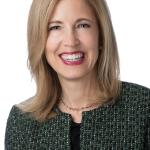 |
Ann KurthNew York Academy of MedicineAnn Elizabeth Kurth, PhD, CNM, MPH, FAAN, FACNM is President of The New York Academy of Medicine, a leading nonprofit organization focused on health equity; she is the first epidemiologist to lead NYAM in its 176-year history. Previously she was the dean and Linda Koch Lorimer Professor at Yale School of Nursing.Email Ann Kurth |

